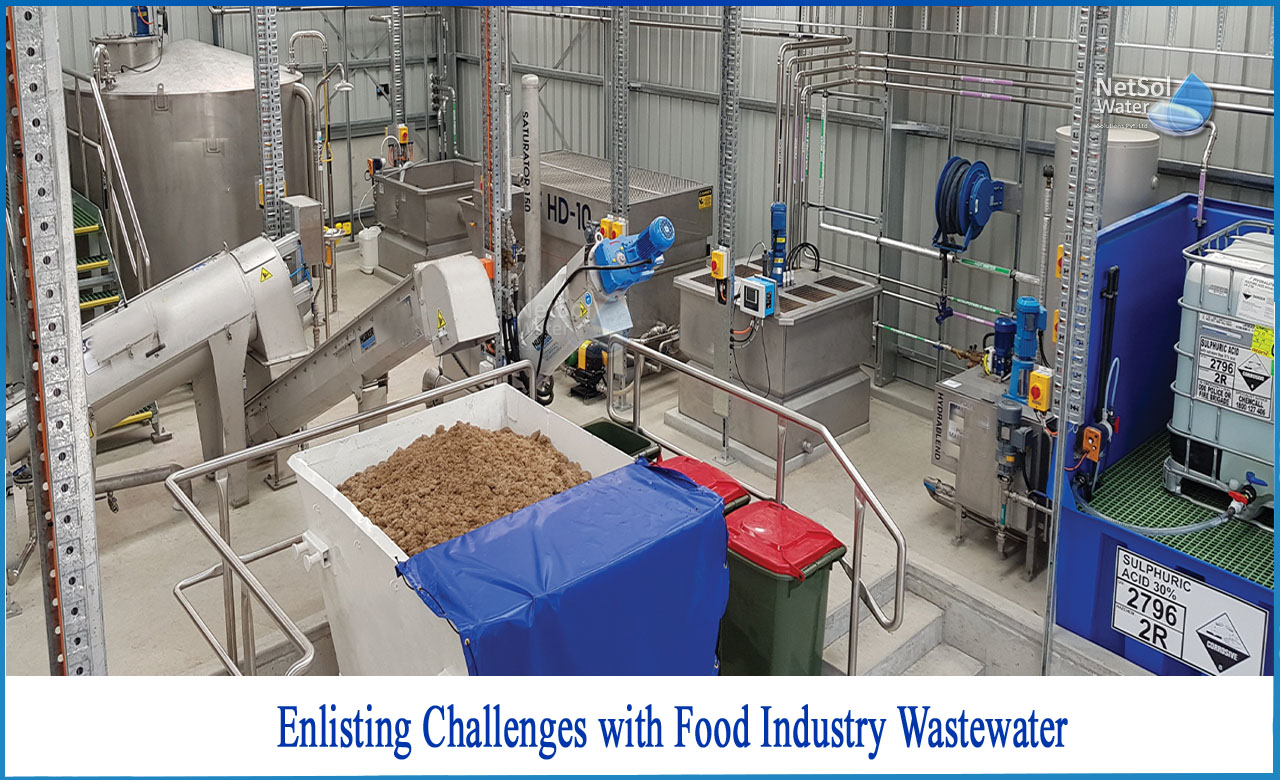What are the challenges with Food Industry Wastewater?
The wastewater discharges from food production might be among the most difficult and costly to remediate. Although the composition varies greatly from one application to the next, most food sector wastewater has one trait in common: a high organic load.
Food processing wastewater necessitates the use of costly, multi-stage treatment methods. The expense of such systems can be significant, but failing to appropriately treat streams on-site can result in a slew of issues, making on-site wastewater treatment attractive, if not necessary.
Food Industry: Composition of Wastewater
Organic nitrogen, organic carbon, suspended particles, dissolved solids, and inorganics are all typically found in wastewater streams. Food industry wastewater might have 10 times higher organic load than municipal wastewater.
Biochemical oxygen demand (BOD) and chemical oxygen demand (COD) are two common measurements of organic load, and both are frequently high in food sector effluent. Under specified conditions, the measurements reveal the quantity of dissolved oxygen required to break down all present organic molecules.
If food sector wastewater is dumped into the environment without being treated, the nutrient-rich soup can cause eutrophication, a situation in which surplus nutrients fuel toxic algal blooms. As a result, the blooms consume all of the oxygen in the water, resulting in fish fatalities, public health concerns, and strained community relations.
Food companies may use municipal treatment plants to handle their wastewater, but because these facilities can become overburdened, some type of treatment must be done on-site first to avoid rate increases or fines.
Wastewater Treatment in the Food Industry
BOD and COD levels in food-industry wastewater are typically thousands of milligrams per litre, if not tens of thousands in some circumstances, such as cheesemakers', wineries', and olive millers' effluent. Furthermore, seasonal variations in production volume may increase design complexity.
To solve these problems, each procedure requires a multistage treatment system, which accounts for a significant portion of the cost. Treatment technologies must be carefully selected based on their performance in certain conditions.
Traditional biological and physical-chemical treatment techniques, as well as anaerobic waste-to-energy processes, are all common treatment technologies. Dissolved air flotation, coagulation, sedimentation, and membrane such as Reverse Osmosis and activated carbon filtration are all possible steps. The lack of space can make all of these more difficult.
Waste-to-Energy Conversion
Food and agricultural wastewater is well-suited for biogas generation via anaerobic digestion due to its high organic load, which can offset production energy costs while also adding value by concentrating nutrients for fertiliser.
Temperature-controlled tanks are used in anaerobic digestion to produce a conducive environment for bacteria that digest organic waste without oxygen. This produces gases such as carbon dioxide and methane, which are collected at the top of the digester and utilised to offset energy costs by powering thermal processes or electrical generators. Excess electricity can even be sold to generate a second source of income.
Without interrupting treatment, improve treatment!
Multistage facilities are complex, and food-processing businesses rarely have the luxury of downtime for modifications.
How can Netsol Water help?
Netsol has a lot of experience integrating waste-to-energy technology into food-processing wastewater treatment plants without interrupting operations.
We are a significant water and wastewater treatment firm in India, offering WTP, WWTP, STP, ETP and RO manufacture, among other services. We've made it our mission to save the planet. The company creates equipment’s and is committed to providing practical solutions that help businesses flourish.
We are committed to providing our valued customers with hands-on service, expert counselling, and training. Every environmental problem and its management have a solution in us. We can provide facilities to treat effluent from all industries, be manufacturing or processing.
Netsol Water is Greater Noida-based leading water & wastewater treatment plant manufacturer. We are industry's most demanding company based on client review and work quality. We are known as best commercial RO plant manufacturers, industrial RO plant manufacturer, sewage treatment plant manufacturer, Water Softener Plant Manufacturers and effluent treatment plant manufacturers. Apart from this 24x7 customer support is our USP. Call on +91-9650608473, or write us at enquiry@netsolwater.com for any support, inquiry or product-purchase related query.



